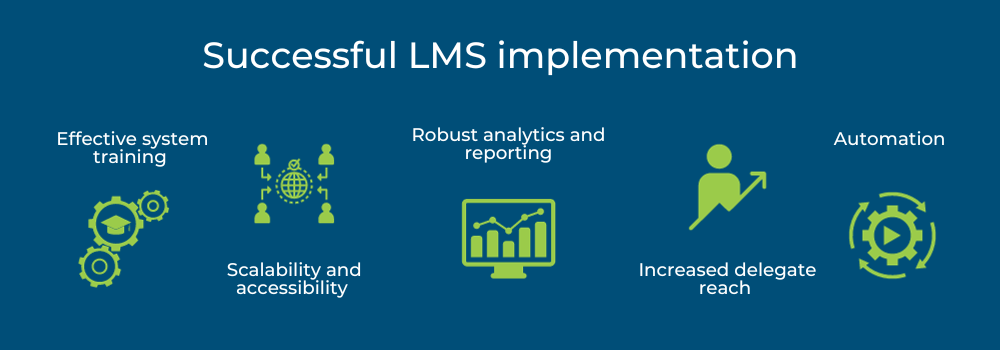Maximising the Return on Investment of a learning management system
In today’s digital landscape, learning management systems (LMS) have become indispensable tools for businesses seeking to enhance learning experiences, streamline training, and increase administrative efficiency. However, justifying the investment of an LMS can be challenging, particularly for public sector organisations, due to constrained budgets, accountability to stakeholders, and governing constraints.
Despite this, the transformative power of an LMS in the public sector should not be underestimated. The benefits extend far beyond streamlined training and efficient processes. An LMS enables data-driven insights that can inform decision-making, optimise resource allocation, and enhance the quality of services provided to the public. By fostering a culture of continuous learning, an LMS equips delegates with updated skills, enabling them to navigate complex challenges and emerging issues effectively.
Understanding the Return on Investment (ROI) of an LMS will allow you to make informed decisions and ensure that it’s meeting the needs of the organisation. The ROI can consist of both tangible and intangible benefits, including time savings, increased productivity, increased course revenue, improved employee and delegate satisfaction, and more informed reporting.
To maximize the ROI of your LMS, it’s essential to consider how the system is implemented, utilised, and integrated into your organisation’s objectives.

Effective system training
Well-trained administrators are more likely to use the LMS to its full potential. Users equipped with the necessary skills will be able to effectively customise and manage training content, track learner progress, generate insightful reports, and adapt strategies based on data-driven insights. Thorough system training reduces the likelihood of errors in content delivery and management, minimising the need for troubleshooting and support requests.
Scalability and accessibility
As your organisation grows, so should your LMS. A scalable platform accommodates a growing user base, new courses, and expanding content libraries without compromising performance. Furthermore, an accessible LMS ensures that learners can access training materials anytime, anywhere, enabling flexibility and inclusivity.
Robust analytics and reporting
An LMS equipped with robust analytics and reporting features empowers administrators to track learner progress, measure course effectiveness, and identify areas for improvement. Data-driven insights enable you to refine your training strategies and address performance gaps effectively.
Automation
Leverage the LMS’s automation capabilities to streamline administrative tasks. By automating routine tasks such as course enrolment, delegate emails and notifications, and data management, administrators can redirect their efforts towards more strategic and value-added activities.
 Increased delegate reach
Increased delegate reach
An LMS can significantly expand delegate reach through the implementation of eLearning and virtual training, as it isn’t affected by geographical boundaries and time constraints. By offering a digital platform accessible from anywhere, individuals can engage in training sessions remotely, eliminating the need for physical presence, thus increasing the course reach.
The Phew Learning Management System offers a comprehensive suite of tools that coordinates training, enhances engagement, and provides data-driven insights. The robust analytics and reporting features enable administrators to quickly track learner progress, measure course effectiveness, and identify areas for improvement. Merton Safeguarding Children Partnership (MSCP) commented that: “The LMS allows MSCP to streamline their training programme by placing the booking procedure and information distribution between partners online. What previously took admin staff many hours of work booking attendees on events manually, they are now booked online by each participant. It enables practitioners to book training and keep track of their continued professional development.”
By harnessing Phew’s LMS, organisations can cultivate a learning culture that directly contributes to improved performance and, ultimately, a higher ROI.
To find out more about the Phew Learning Management System, please visit https://www.phew.org.uk/digital-products/learning-management-system.
